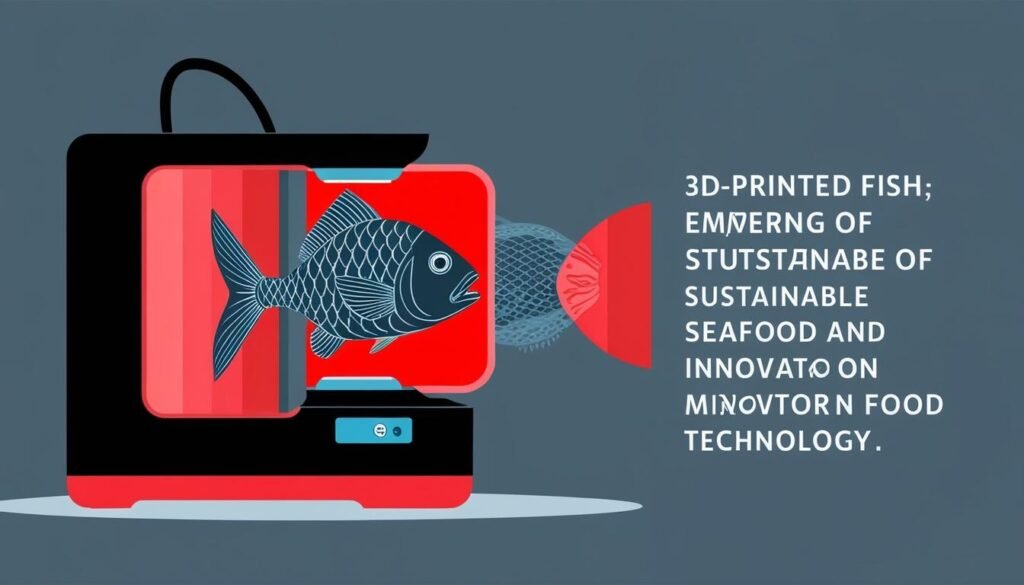The partnership has successfully developed scalable 3D-printed cultivated fish products, aiming to meet the growing demand for ethical protein sources and support marine biodiversity.
In a significant development within the cultivated seafood sector, UMAMI Bioworks and Steakholder Foods have formally concluded a two-year research and development collaboration, supported by the Singapore-Israel Industrial R&D (SIIRD) grant. This partnership has successfully demonstrated the feasibility of producing 3D-printed cultivated fish products at scalable volumes, marking a notable advancement in sustainable seafood production.
The partnership, which has been operational since its inception, explored the integration of 3D printing technology with cell cultivation techniques to produce premium cultivated fish alternatives. It has resulted in the creation of prototype designs that mimic the characteristics of various fish species, potentially transforming the landscape of the seafood industry. UMAMI Bioworks, recognised for its leadership in cultivated seafood, expressed its commitment to addressing the growing demand for ethical protein sources while preserving marine biodiversity.
Mihir Pershad, CEO of UMAMI Bioworks, articulated the strategic importance of the collaboration, stating, “Our partnership with Steakholder Foods is well aligned with our strategy to create a sustainable seafood platform with the scalability required for global impact.” The integration of advanced 3D-printing technology is viewed as a crucial step towards achieving this goal.
As the initiative progresses, UMAMI Bioworks and Steakholder Foods plan to collaborate with the National Additive Manufacturing Innovation Cluster (NAMIC) in Singapore, which operates under the aegis of A*STAR. This joint effort aims to transition the recent R&D breakthroughs into commercially viable seafood products while ensuring adherence to food safety standards and regulatory frameworks. NAMIC’s CEO, Dr. Ho Chaw Sing, underscored the importance of this collaboration in bolstering the cellular agriculture industry as a sustainability-oriented alternative to conventional aquaculture methods.
“The initiative supports Singapore’s 30 by 30 food resilience goal,” Dr. Ho noted, referring to the nation’s objective of producing 30% of its nutritional needs through local sources by 2030. The concerted effort of both companies is expected to address industry demands for seafood products that align with evolving regulatory and sustainability expectations.
Arik Kaufman, CEO of Steakholder Foods, further elaborated on the potential impact of the partnership, stating, “By combining our expertise in 3D printing with UMAMI Bioworks’ cultivated product platform, we aim to develop commercial products that meet industry needs while aligning with regulatory and sustainability goals.” The collaboration is positioned as a model for similar ventures in cellular agriculture, emphasising the application of innovative technologies to counter environmental challenges linked to traditional fishing practices.
Looking ahead, UMAMI Bioworks and Steakholder Foods are set to target both local and international markets with their commercial-ready seafood products. Their efforts reflect a growing trend within the food industry where businesses increasingly rely on AI and automation technologies to enhance efficiency and support sustainable practices in production processes. The ongoing dialogue within the sector indicates a broader acceptance of such innovations as necessary steps toward promoting environmental stewardship and meeting consumer demand for sustainable options.
Source: Noah Wire Services
- https://www.steakholderfoods.com/blog/umami-bioworks-and-steakholder-foods-join-forces-to-scale-3d-printed-fish-fillets-for-global-commercialization – Corroborates the conclusion of the two-year R&D collaboration and the partnership’s goal to scale 3D-printed cultivated fish products.
- https://igrownews.com/umami-bioworks-steakholder-foods-advance-3d-printed-cultivated-seafood/ – Supports the information about the two-year R&D collaboration funded by the Singapore-Israel Industrial R&D (SIIRD) grant.
- https://cultivated-x.com/seafood/umami-bioworks-steakholder-foods-scale-3d-printed-cultivated-fish/ – Confirms the successful scaling of 3D-printed cultivated fish products and the collaboration between UMAMI Bioworks and Steakholder Foods.
- https://www.alt-meat.net/umami-bioworks-steakholder-partner-scale-3d-printed-fillets – Verifies the feasibility of producing 3D-printed cultivated fish products at scalable volumes.
- https://www.voxelmatters.com/umami-and-steakholder-foods-scale-3d-printed-fish-fillets/ – Details the partnership with Singapore’s National Additive Manufacturing Innovation Cluster (NAMIC) for commercialization.
- https://www.steakholderfoods.com/blog/umami-bioworks-and-steakholder-foods-join-forces-to-scale-3d-printed-fish-fillets-for-global-commercialization – Provides context on the integration of 3D printing technology with cell cultivation techniques.
- https://igrownews.com/umami-bioworks-steakholder-foods-advance-3d-printed-cultivated-seafood/ – Supports Mihir Pershad’s statement on the strategic importance of the collaboration for a sustainable seafood platform.
- https://cultivated-x.com/seafood/umami-bioworks-steakholder-foods-scale-3d-printed-cultivated-fish/ – Corroborates the plan to collaborate with NAMIC in Singapore for commercial viability and adherence to food safety standards.
- https://www.alt-meat.net/umami-bioworks-steakholder-partner-scale-3d-printed-fillets – Supports Dr. Ho Chaw Sing’s comments on the initiative’s alignment with Singapore’s 30 by 30 food resilience goal.
- https://www.voxelmatters.com/umami-and-steakholder-foods-scale-3d-printed-fish-fillets/ – Details Arik Kaufman’s statement on combining expertise in 3D printing and cultivated product platforms for commercial products.















